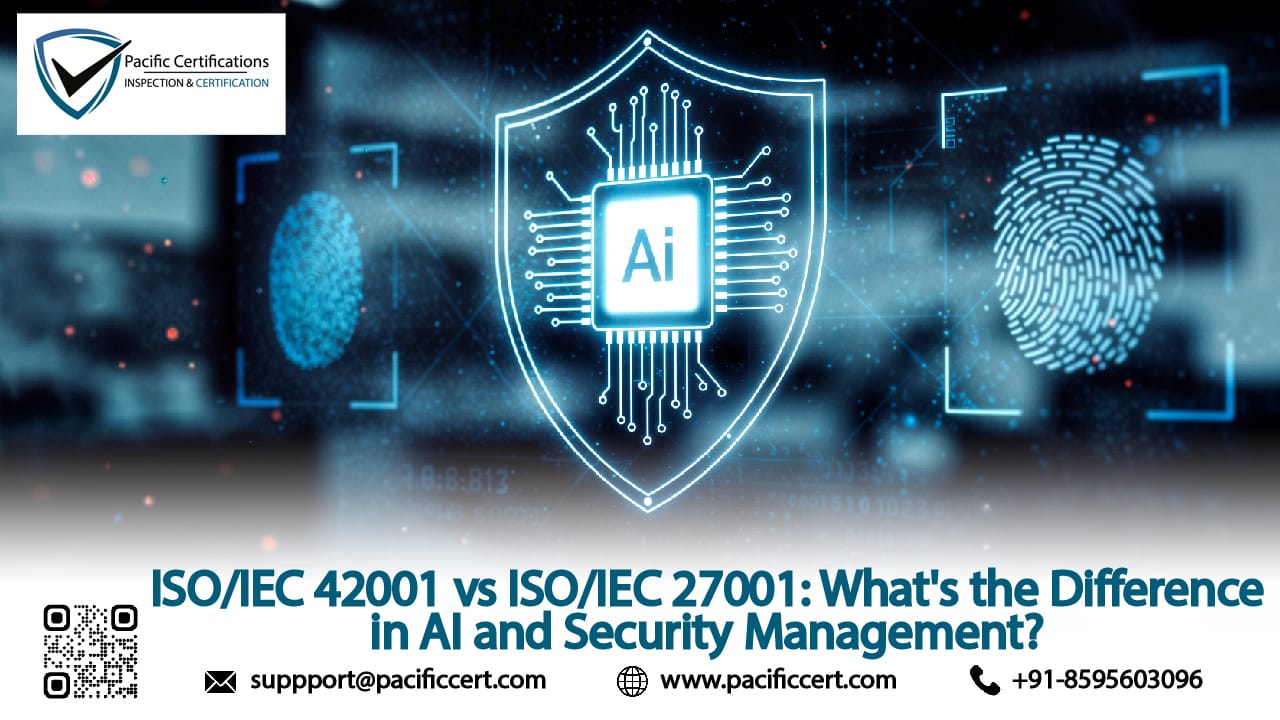
ISO Certifications for Data Management and Analytics Services
In today's fast-evolving digital landscape, businesses are increasingly reliant on data to drive decision-making and fuel innovation. ISO certifications for data management and analytics services offer organizations a framework to ensure that their data handling processes are both reliable and secure.

These certifications help companies to implement best practices in handling sensitive data, managing risks, and optimizing data analysis operations. Some of the most relevant standards for this domain include:
- ISO/IEC 27001 (Information Security Management)
- ISO/IEC 20000-1 (IT Service Management)
- ISO 9001 (Quality Management Systems)
- ISO/IEC 38505-1 (Governance of IT for the Organization)
- ISO/IEC 19944-1:2020 (Cloud computing and distributed platforms)
Click here to find out more applicable standards to your industry
We at Pacific Certifications can help your organization to achieve these certifications by guiding them through a seamless auditing and certification process. For more details on how we can help, reach out to us at support@pacificcert.com.
Below are some of the key ISO standards applicable to data management and analytics companies:
ISO/IEC 27001 – Information Security Management Systems (ISMS): ISO/IEC 27001 is one of the most critical certifications for data management services. It provides a framework for managing the security of information assets, including financial data, intellectual property, and customer data.
Requirements of ISO/IEC 27001:

- Establish a structured Information Security Management System (ISMS).
- Conduct risk assessments and manage information security risks effectively.
- Implement necessary controls to mitigate risks (e.g., access control, encryption).
- Regularly monitor and review the ISMS to ensure it remains effective.
- Engage in continuous improvement through regular audits and management reviews.
By certifying to ISO 27001, your organization demonstrates its commitment to protecting sensitive data from breaches.
ISO 9001 – Quality Management Systems (QMS): ISO 9001 focuses on improving the quality of products and services, ensuring customer satisfaction.
Requirements of ISO 9001:
- Establish a Quality Management System (QMS) that defines roles, responsibilities, and processes.
- Focus on customer satisfaction by continually improving the quality of services.
- Perform regular internal audits and reviews to assess performance.
- Engage in corrective actions and preventive measures to address non-conformities.
ISO/IEC 20000-1 – Service Management System (SMS):
In the field of data management and analytics, having a well-defined and efficient IT service management process is important. ISO/IEC 20000-1 sets out a framework for managing IT services in a way that aligns with business objectives and customer requirements.
Requirements of ISO/IEC 20000-1:
- Implement a Service Management System (SMS) that covers the full lifecycle of IT services.
- Ensure that service delivery is aligned with customer needs and business goals.
- Establish procedures for incident management, change management, and service continuity.
- Continually improve the quality of IT services through regular audits and performance reviews.
ISO/IEC 38500 – IT Governance: For organizations involved in data analytics, effective IT governance is essential. ISO 38505-1 provides guidance on how organizations should govern IT assets, ensuring they are used to achieve business goals while mitigating risks associated with data management.
Requirements of ISO/IEC 38505-1:
- Implement policies and frameworks to govern IT resources effectively.
- Align IT strategies with business objectives and stakeholder expectations.
- Manage risks and opportunities associated with the use of IT in data management.
- Ensure that data governance processes comply with legal, regulatory, and ethical standards.
ISO/IEC 27701 – Privacy Information Management Systems (PIMS): As an extension to ISO/IEC 27001, this standard provides guidance on the management of privacy information, including how organizations should manage personal data.
ISO 22301 – Business Continuity Management Systems (BCMS): This standard focuses on keeping a company's operations running during and after a critical event. Implementing ISO 22301 can help data management and analytics companies ensure the continuity and recovery of their critical functions, minimizing downtime and data loss.
ISO 31000 – Risk Management: This standard provides guidelines on risk management principles and implementation. For data management and analytics companies, applying these guidelines can help identify and mitigate risks related to data security.
Each of these ISO standards addresses different aspects of a data management and analytics company's operations, from quality management and information security to service delivery and risk management.
Pacific Certifications provides expert auditing and certification services. To learn more, contact us at support@pacificcert.com.
Benefits of ISO Certifications for Data Management and Analytics Services
Obtaining ISO certifications for data management and analytics services can provide several benefits to your organization, including:
- ISO standards such as ISO/IEC 27001 ensure that your organization has the appropriate security controls to protect sensitive data.
- Adhering to ISO certifications helps your organization meet regulatory requirements.
- Standards like ISO 9001 and ISO/IEC 20000-1 ensure streamlined operations and better use of IT resources.
- Demonstrating ISO compliance reassures clients that their data is in safe hands.
- ISO certifications require organizations to identify and mitigate risks.
- Achieving ISO certification can differentiate your organization from competitors.

ISO certifications are vital for organizations involved in data management and analytics services. They provide the framework necessary to manage data securely. Whether it's information security or quality management, ISO standards offer tangible benefits that improve your organization's performance and customer trust.
Pacific Certifications is accredited by ABIS, in case you need support with ISO certification for your Data Management and Analytics business, please contact us at suppport@pacificcert.com or +91-8595603096.

Read more: What makes ISO/IEC 27701:2019 Certification different from ISO/IEC 27001:2022 Certification?


